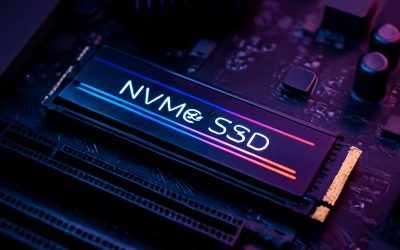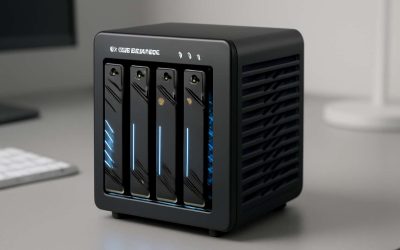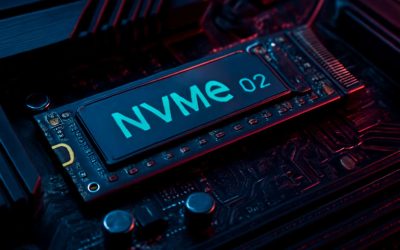
NVMe SSD drives are an excellent investment for those who want to upgrade the storage capacity of their computers, workstations, gaming laptops, and tablets. This technology delivers higher speeds than traditional hard disk drives and SSDs by utilizing PCIe data lanes to transfer data between the drive and your computer’s processor. This faster data transfer rate enables you to access stored files in as little as 2.8 microseconds, which is significantly better than the 5-10 microseconds it takes a hard disk drive to locate and read data.
The NVMe SSDs that are available at ServerMania have been carefully tested to ensure they provide the highest level of performance. This includes measuring the amount of time it takes to perform a task, such as reading or writing data, and the number of tasks that can be performed simultaneously. Additionally, we look at the drive’s endurance rating to ensure it can withstand a high level of usage and provide maximum reliability.
NVMe stands for non-volatile memory express, and this technology was created to replace SATA. While SATA was developed for spinning hard drives, NVMe was built with flash chips in mind, allowing it to support multiple operations at once. This increased efficiency translates to significant increases in performance, including four- to five-fold increase in read and write throughput and 10 times faster seek times than SATA SSDs.
Another benefit of NVMe SSDs is that they are more reliable than traditional hard drives. While regular hard drives use spinning metal platters to store data, NVMe SSDs are made from silicon microchips that can withstand exposure to shocks and vibrations. This makes NVMe SSDs ideal for industrial systems, as they can operate in harsh environments.
There are several different types of NVMe SSDs, including M.2 SSDs, which fit into a standard motherboard slot like a graphics card. These SSDs are popular for desktop computers and laptops, but they can also be found in rugged edge computing hardware.
While these SSDs are much more efficient than SATA drives, they do come with a price tag that is higher than that of conventional SSDs. The price difference is due to the fact that NVMe SSDs are able to process more commands per second than conventional SSDs. Compared to the 1x command queue that is supported by the SATA interface, NVMe supports up to 64K commands, making it an ideal choice for demanding applications such as database servers, real-time data processing and analytics, and AI/ML.
The latest NVMe SSDs feature newer controllers that can handle larger amounts of data than previous generations. For example, the Kingston Fury Renegade SSDs use a Phison E18 controller and Micron’s latest 176-layer flash chips to achieve up to 6,900 MB/s sequential write throughput. This is an impressive increase in speed that can help to improve application performance and reduce latency. Additionally, these SSDs have a high endurance rating that means they can withstand up to 1.4 million hours of operation, which is far more than the 500TB endurance limit of traditional hard drives.



0 Comments